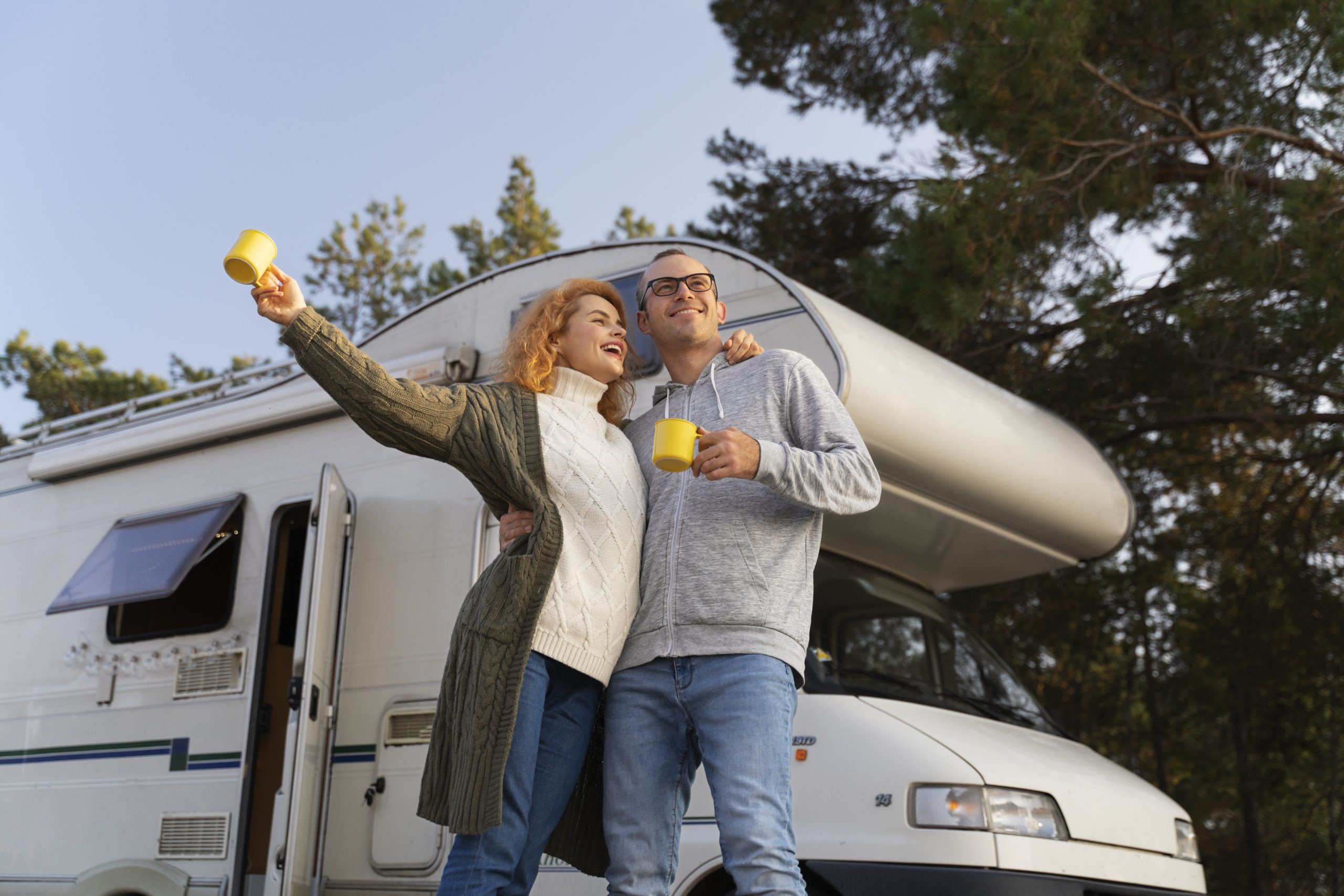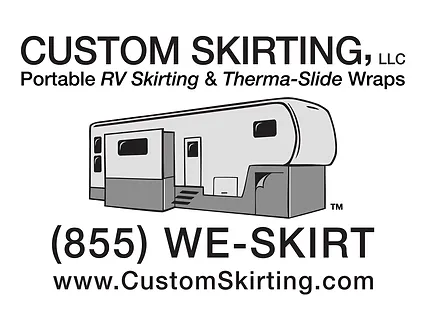
The Complete Guide on Buying An RV
Table of contents
When it comes to buying an RV, you’re not just purchasing a vehicle; you’re investing in a lifestyle filled with adventure and freedom. The allure of the open road, the flexibility to travel on your terms, and the comfort of a home on wheels make buying a camper an enticing prospect. However, before you embark on this journey, it’s essential to have a solid plan in place. This comprehensive RV buying guide will walk you through the process, from understanding your needs and budget to deciding between new and used options, maintenance considerations, insurance, and even the essential must-haves for your camper adventure. So, if you’re pondering, “How much are RVs?” and considering buying a camper, let’s get started with your RVs buyers guide.
Determine What You’re Looking for and Set a Budget
Before you start shopping for an RV, it’s crucial to understand your specific needs and set a budget. In our RV buyers guide, the first step is to consider how you plan to use your RV. Will it be for weekend getaways, long-term travel, or full-time living? Who will be traveling with you? These questions will help you determine the type of RV that suits your requirements. RVs come in various shapes and sizes, each designed to cater to different travel needs. The three main classes of RVs are Class A, Class B, and Class C.
Class A
Class A are the most luxurious and spacious motorhomes. These are perfect for those seeking a luxurious lifestyle on the road. They are often equipped with all the amenities of a home and are suitable for full-time living. Class A RVs offer plenty of space, with living areas, bedrooms, and large kitchens. However, they can be more challenging to maneuver and consume more fuel.
Class B
If you are considering buying a camper class B, also known as camper vans, are the most compact and maneuverable of the three classes. They are ideal for solo travelers or couples looking for a more compact and fuel-efficient option. Class B RVs may not have all the amenities of larger RVs, but they offer a convenient and cozy way to travel.
Class C
If you are considering buying a camper class C you should know these are a middle-ground choice, combining some of the comforts of Class A RVs with the maneuverability of Class B RVs. These RVs often have a distinctive over-cab section, providing extra sleeping space or storage. Class C RVs are great for families and those who want a balance between comfort and maneuverability.

Decide if You Want a New or Used RV
Once you’ve determined the type of RV that suits your needs, it’s time to decide whether you want to buy a new RV or used one. Both options have their pros and cons! Check this RV buying guide.
Buying a New RV vs. Used RV: Pros and Cons of Each
Pros and Cons of Buying a New RV
Pros:
- Warranty: New campers typically come with warranties, providing peace of mind.
- Modern Features: New RVs often feature the latest technology, appliances, and design trends.
- No Wear and Tear: You won’t have to worry about the wear and tear of previous owners.
Cons:
- Depreciation: New RVs depreciate rapidly in the first few years, losing a significant portion of their value.
- Higher Costs: A new camper comes with a higher price tag compared to a used one.
- Limited Customization: Might not offer the same level of personalization as used ones.
Pros and Cons of Buying a Used RV
Pros:
- Lower Depreciation: Used RVs have already gone through the steepest part of their depreciation curve, making them a better investment.
- Lower Cost: You can often get a larger or more feature-rich used RV for the same budget as a new one.
- History: You can research the RV’s history and any known issues before making a purchase.
Cons:
- Potential Wear and Tear: Depending on the previous owner’s care, a used RV may have more wear and tear.
- Limited Warranty: Used RVs may not come with the same level of warranty coverage as new ones.
- Older Features: You may miss out on the latest technology and design trends.
RV Maintenance Considerations
Owning an RV involves ongoing maintenance to keep it in top shape. Regular maintenance ensures your safety, extends the RV’s lifespan, and prevents costly repairs down the road. Here are some maintenance tasks to consider:
- Exterior Maintenance: Regularly inspect and maintain the exterior of your RV. This includes checking for leaks, seals, and any damage to the roof or body. Keeping the exterior clean, sealed, and protected will help prevent water damage and extend the life of your RV.
- Interior Maintenance: Don’t forget to take care of the inside of your RV. Check for any signs of wear and tear, ensure all appliances are in working order, and clean and sanitize the interior regularly.
- Engine and Mechanical Systems: Regular engine maintenance is crucial to ensure your RV runs smoothly. Check oil, filters, belts, and other engine components per the manufacturer’s recommendations.
- Tire Maintenance: Proper tire maintenance is essential for safety and fuel efficiency. Check tire pressure, inspect for wear and tear, and rotate the tires as needed.
- Plumbing and Electrical Systems: Regularly check the plumbing for leaks and ensure that all electrical systems are in working order.
- Propane System: If your RV uses propane, check the system for leaks and ensure that all appliances using propane are functioning correctly.
- Generator Maintenance: If your camper has a generator, follow the manufacturer’s recommendations for maintenance to ensure it runs smoothly when needed.
Regular maintenance is not just a matter of convenience; it’s a safety and financial necessity. Neglecting maintenance can lead to breakdowns, costly repairs, and potentially unsafe conditions on the road. By staying on top of maintenance, you’ll be able to enjoy your camper with peace of mind.
Insurance Options
Insurance is an essential aspect of ownership. It provides protection for your camper and offers liability coverage in case of accidents or damage to others. When selecting an insurance policy, consider factors such as coverage limits, deductibles, and the type of coverage you need. Shop around and get quotes from multiple providers to find the best insurance option that fits your budget and provides adequate coverage.
There are several types of insurance to consider, including:
- Liability Insurance: This covers damage to others and their property in case of an accident where you are at fault.
- Comprehensive Insurance: This covers damage to your camper from non-collision events, such as fire, theft, vandalism, and natural disasters.
- Collision Insurance: This covers damage to your camper in a collision, whether it involves another vehicle or an object.
- Uninsured/Underinsured Motorist Coverage: This protects you in case of an accident with a driver who doesn’t have insurance or enough insurance to cover your damages.
- Full-Timer’s Insurance: If you live in your camper full-time, you may need specialized coverage that includes personal liability and additional coverage for your belongings.
Be sure to thoroughly read and understand the terms and conditions of your RV buyers guide insurance policy. Different insurance providers may offer various options and levels of coverage, so choose the one that best fits your needs and budget.
Verify What Type of License You Will Need
Various kinds of RVs may necessitate distinct licenses contingent on your location. It is imperative to conduct thorough research and comprehend the licensing prerequisites for your particular RV buyers guide. Larger motorhomes may necessitate a specialized class of driver’s licenses. Neglecting to possess the appropriate license could lead to legal challenges and potential insurance intricacies, so ensure strict compliance with all licensing prerequisites when considering buying a camper.
RV Must-Haves for Newbies
Whether you’re a seasoned RVer or a newbie who needs an RV buying guide, there are essential items you should have before hitting the road. Here are ten must-haves for your camper:
- Water and sewer hoses.
- Leveling blocks.
- Basic tool kit.
- Tire pressure gauge.
- First-aid kit.
- Fire extinguisher.
- Cookware and utensils.
- Bedding and linens.
- Flashlights and lanterns.
- Campsite reservations and maps.
These must-haves ensure that you’re well-prepared for a wide range of situations on the road. Whether you’re cooking a meal, staying safe, or taking care of minor repairs, having the right tools and supplies can make your RV-buying guide camper journey more enjoyable and stress-free.

Get Your RV Ready for Your Next Trip
Before embarking on your adventure, take the time to ensure your vehicle is in top condition. This is especially important if you plan to travel during the winter months. Consider getting custom skirting for your RV, which is especially beneficial for cold-weather camping.
Custom skirting helps insulate your RV, preventing cold air from entering and warm air from escaping. This results in energy savings and a more comfortable living environment. Additionally, it protects your RV’s undercarriage and plumbing from freezing temperatures, reducing the risk of damage.
When getting custom skirting, it’s essential to work with a professional team that can measure and tailor the skirting precisely to your RV’s specifications. Custom Skirting is a reliable choice for crafting custom RV skirting solutions, offering both protection and convenience.
Ready to Begin Your Adventure?
Remember that owning a camper is not just about the initial purchase; it’s about maintaining and caring for your home on wheels, ensuring it’s always ready for your next adventure. Don’t forget to consider insurance, license requirements, and essential must-haves for your travels. And when it comes to preparing your RV for the winter, Custom Skirting can make a world of difference.
So, what are you waiting for? Take these insights, choose the correct RV with our buyers’ guide, and hit the road. Adventure, freedom, and unforgettable experiences are just around the corner. Your Camper journey awaits!
